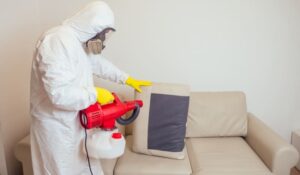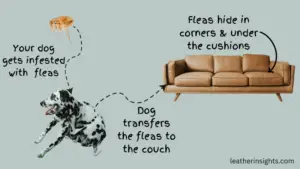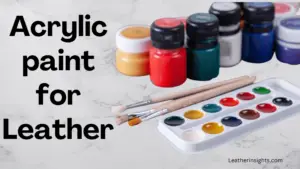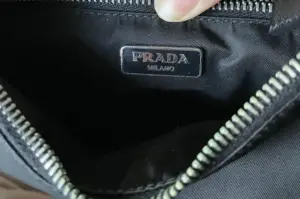Can fleas live on a leather sofa?
Anyone who’s ever had a pet knows that sooner or later, you’re going to have to deal with fleas. And if you have a leather sofa, you’re probably wondering if those pesky bugs can live on it.
Unfortunately, yes. Fleas can live on a leather sofa or furniture especially when the humidity is high. They like to hide in the creases of the couch or near heat sources.
The good news is that they can’t live on leather for very long as long as you keep your sofa clean.
But just in case you have a flea infestation, we are going to give you a few tips to get rid of them from your sofa and home in this post.

Can fleas live on a leather sofa?
Fleas are very resilient creatures and can live in a wide variety of environments, including on a leather sofa. The important thing to remember is that fleas need two things to survive: food and warmth. So, as long as there is a food source (i.e. your pet) and warmth (i.e. from your body heat), fleas will be happy to make their home on your leather sofa.
How to tell if there are fleas on your leather couch
If you think you might have fleas on your leather couch, there are a few things you can do to determine whether or not you have a flea infestation.
- Inspect the couch: Inspect your couch for tiny, dark-colored bugs crawling around on the couch or hiding in the cracks. These are adult fleas and are usually the only ones you’ll see.
- Look for brown or black specks: The small brown or black specks on your couch cushions or around the edges are signs of flea droppings. You may also see them near where your pet sleeps.
- Check for small white eggs: Fleas typically lay their eggs in carpeting or upholstery. So, if you see small white eggs on the cushions, your couch is probably infested by fleas.
- Inspect your pet: If your pet has fleas, there’s a chance that your beloved leather couch has fleas too. You can tell this when your pets start scratching the leather sofa.

How to get rid of fleas on leather sofa
It’s important to treat fleas quickly before they have a chance to multiply and cause an infestation.
If you think your couch might have fleas, don’t despair. There are a number of effective treatments that you can use to get rid of fleas on a leather sofa.
1. Treat your pet
The first thing you should do when you have a flea infestation is to treat your pet first; otherwise, the fleas will just keep coming back.
Treat your pet with an anti-flea treatment that is effective against adult fleas as well as eggs and larvae. Consider doing this regularly to destroy existing flea infestations in your home and make it less likely that the fleas will end up on your sofa.
2. Vacuum the sofa
Vacuuming your leather couch regularly can help to get rid of fleas.
To do this, use the brush attachment to reach all the nooks and crannies of the sofa. You can also sprinkle some baking soda mixed with salt over the entire surface of the sofa and let it sit for at least 30 minutes and then vacuum again.
Although baking soda and salt mixture does not kill adult fleas, it destroys the eggs and the larvae by dehydrating them, which prevents further infestation.
You may need to repeat this process a few times to completely get rid of the fleas and their eggs.
3. Clean the furniture
Another effective way to get rid of fleas is to simply clean your leather furniture with soap and water.
This is a great way to give your furniture a good cleaning and remove any fleas that may be present.
Since fleas dislike strong smells, consider adding essential oils like lemongrass or mint into the water when cleaning. The strong smell will also prevent the fleas from coming back.
However, remember that abrasive cleaners and water are the worst enemies of leather. So use a mild soap like dove soap when cleaning leather and avoid soaking the furniture in water.
4. Use flea spray
You can also get rid of the fleas by spraying using a flea spray meant for indoor use.
There are a few different types of sprays available, so it’s important to choose one that is safe for both you and your pets
An all-natural or plant-based flea spray is considered safe to use and kills fleas and destroys the larvae and eggs. When applying the flea spray, be sure to get into all the nooks and crannies of the couch, as well as along the seams.
Pay special attention to any areas where your pet likes to rest, as this is where fleas are likely to congregate.
Allow the spray to dry completely before allowing anyone or anything back on the couch.
5. Flea collar
A flea collar is a good option if you’re having trouble getting rid of the fleas using other methods. You can opt to put the collar on your pet to kill the fleas on it or place it inside the vacuum.
The collar works by releasing a chemical that kills fleas and other insects. So make sure to keep the area well-ventilated as the fumes can be harmful if you breathe them in.
Placing the collar inside the vacuum cleaner is the ideal method if you have a flea infestation on your couch. This is because the fleas are sucked up and killed by the flea collar fumes inside the vacuum.
Once done vacuuming, remember to remove the flea collar from the vacuum cleaner and dispose of it in a bin outside of your home.
Alternatively, consider using a different type of flea treatment or control method that is much safer such as sprays or powders.
Conclusion
There is no doubt that fleas can live on a leather sofa and so do bed bugs. While adult fleas may live for about 5 to 14 days on the leather furniture, the larvae and eggs may continue to survive and result in a flea infestation.
A flea infestation may be challenging to get rid of but with the right flea treatments, you might be able to destroy them completely.
If you’re concerned about fleas on your sofa, the best course of action is to vacuum regularly and have your pet treated with a veterinarian-approved flea prevention product.
Fleas typically lay their eggs in carpeting or other upholstery too so remember to vacuum them regularly as well. Also, avoid letting pets that have fleas sleep on them.
However, if all the things we have said above fail to work, consider contacting a professional exterminator for help.






